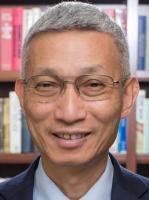Event

CSCC Speaker Series
Corruption in the post-Tiananmen era exhibits distinct characteristics not found in the 1980s, such as astronomical sums of money looted by officials, their family members, and their cronies in the private sector, large networks of co-conspirators, and the sale of public office. By examining the evolution of Chinese economic and political institutions since the early 1990s, we can trace the emergence of crony capitalism to two critical changes in the control of property rights of the assets owned by the state and the personnel management of the officials the ruling Communist Party. The cumulative effects of these changes have dramatically decentralized the control of public property without clarifying its ownership and granted local party chiefs unprecedented personnel power. Consequently, local political and business elites gain greater incentives and opportunities to collude with each other in looting the assets nominally owned by the state. The insights from a sample of 260 cases of corruption involving multiple officials and businessmen suggest that crony capitalism in China has given birth to a decentralized kleptocracy with its own market rules and dynamics.
Minxin Pei is an expert on governance in the People's Republic of China, U.S.-Asia relations, and democratization in developing nations. He currently serves as the director of the Keck Center for International and Strategic Studies at Claremont McKenna College and is a non-resident senior fellow with the Asia program at the German Marshall Fund of the United States. He was formerly a senior associate with the Asia Program at the Carnegie Endowment for International Peace. Pei earned his bachelor's degree in English from the Shanghai International Studies University, and a master's degree and PhD in Political Science from Harvard University. In addition, he holds an M.F.A. from the University of Pittsburgh. He is a Tom and Margot Pritzker '72 Professor of Government and George R. Roberts Fellow and Director of the Keck Center for International and Strategic Studies.